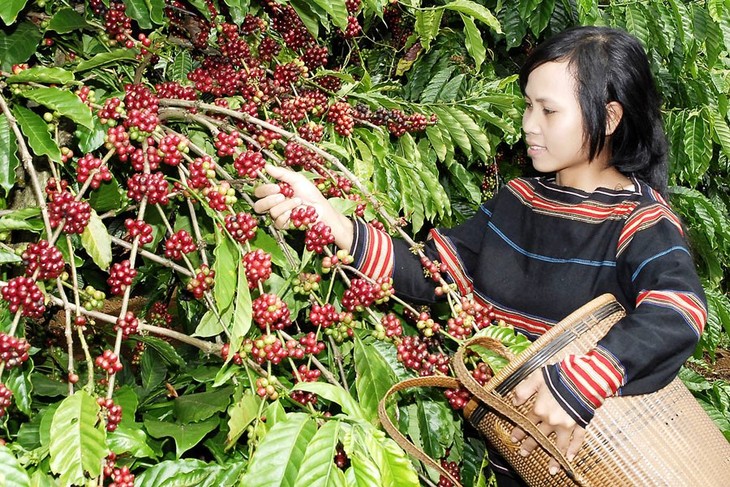(VOVworld)- The 6th Buon Ma Thuot Coffee Festival, which took place from March 8th to 13th, coincided with the 100th year since Robusta was first planted in Dak Lak province. Coffee production has now become the province’s spearhead economic sector.

Photo: cheerfarms.com
|
In 1916, the Indochina Highlands Company and CADA, the Annam Agriculture Company become the first companies to plant coffee in Dak Lak province. At that time, coffee was planted on only a few dozen hectares, so the yield was low. Though the volume of harvested coffee beans was low, it was all transported back to France. The coffee was highly regarded by customers – well beyond the expectations of the French export companies. In 1931, the coffee growing area was expanded to 2,000 ha, half of it owned by CADA. By 1975, total coffee growing area in Dak Lak has increased to 8,600 ha, with a yield of more than 11,000 tons. Mr. Tran Hung, Director of the Dak Lak Provincial Relic Management Committee, says that thanks to exporters and tourists, Ban Me Thuot coffee has become famous worldwide: “The CADA coffee farm is recognized as a national historical relic site. This is where the French established the first coffee farm in Buon Me Thuot. At the Buon Ma Thuot coffee festival, we displayed photos of the CADA farm throughout its history."
Since 1975, Vietnam’s coffee production has continued to grow robustly in yield, plantation area, and export value. Last year, Vietnam’s coffee farms covered more than 640,000 ha with a yield of 2.4 tons per ha. Vietnam exported nearly 1.8 million tons of coffee beans worth 3.4 billion USD. Vietnam is the world’s second largest coffee producer and exporter and ranks 1st in Robusta coffee production and export. Vietnam’s coffee sector has developed a comprehensive strategy for planting, harvesting, processing, and exporting to cope with the challenges of climate change and fierce competition. Associate Professor Doctor Truong Hong is Acting Director of the Central Highlands Agro-Forestry Scientific and Technical Institute: “We need high quality coffee seeds that are pest-resistant, drought-resistant, and adaptive to climate change. We also need to apply different technological solutions.”
Over the past century, coffee has become a main currency earner of the Central Highlands and a major contributor to Vietnam’s GDP.